Join the REP Waste Campaign: Get Recycling Savvy and Play Our Sorting Game
Resource Efficiency Program (REP)The REP Waste Campaign runs from: October 16-29, 2023.
Sorting like a pro is a journey—join the adventure with us!
Ready to boost your recycling IQ, or are you feeling like a waste whiz already? Take our quiz on those pesky common contaminants and show our waste team what Harvard students know!
*For best visibility on mobile, turn your phone horizontally.
Click to see the answer key here!
For more information on why items are categorized this way: RecycleSmart MA has amazing FAQ’s and Resources.
Waste Regulations
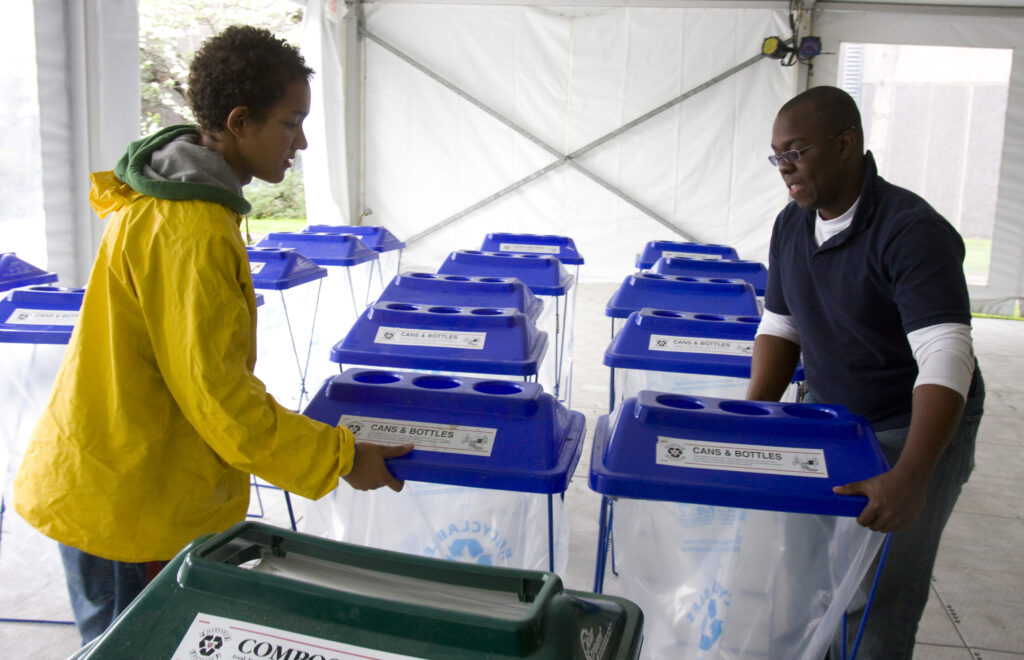
Ever wondered if we’re being eco-outlaws by accident? Cambridge and Massachusetts have regulations about what belongs in the recycling bin, and what is banned from the trash.
No worries, we all make mistakes and we’re on this journey together to stay on the green side of the law!
“Recycling is mandatory in Cambridge; items on the curbside recycling list are banned from disposal as trash in Massachusetts.”
Massachusetts Waste Ban Items:
- Recyclable Paper – ALL paper, cardboard, and paperboard products (does NOT include tissues, paper towels, plates, or cups)
- Glass bottles and jars
- Metal beverage and food containers
- Plastic bottles, jars, jugs, and tubs
- Textiles – clothing, footwear, linens
- Food waste from institutions that generate more than ½ ton per week
- Leaves and yard waste
- Scrap metal – such as appliances
- Mattresses
- CRTs – cathode ray tubes
- Gypsum wallboard
- Lead Acid batteries
- Whole tires
- Wood waste
- Asphalt pavement, Brick, Concrete
Waste Management Hierarchy
Let’s work together to prevent waste in the first place!
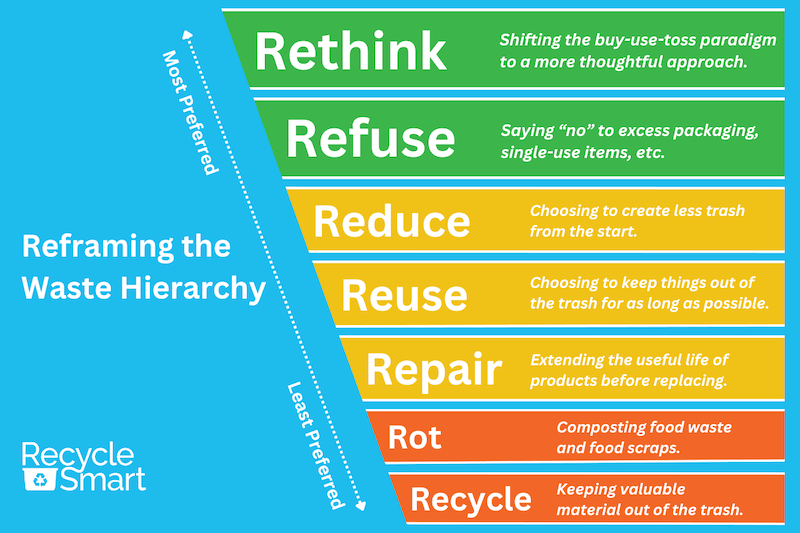
Waste Signage Scavenger Hunt
Calling all waste signage sleuths! Use your keen eye by participating in our Waste Signage Scavenger Hunt. Help us locate old, outdated signs in need of a modern makeover!
All are welcome to participate; simply snap a picture and upload it to our quick google form. Undergraduates who submit a form will earn points towards the Green Cup Competition for their House or Dorm!
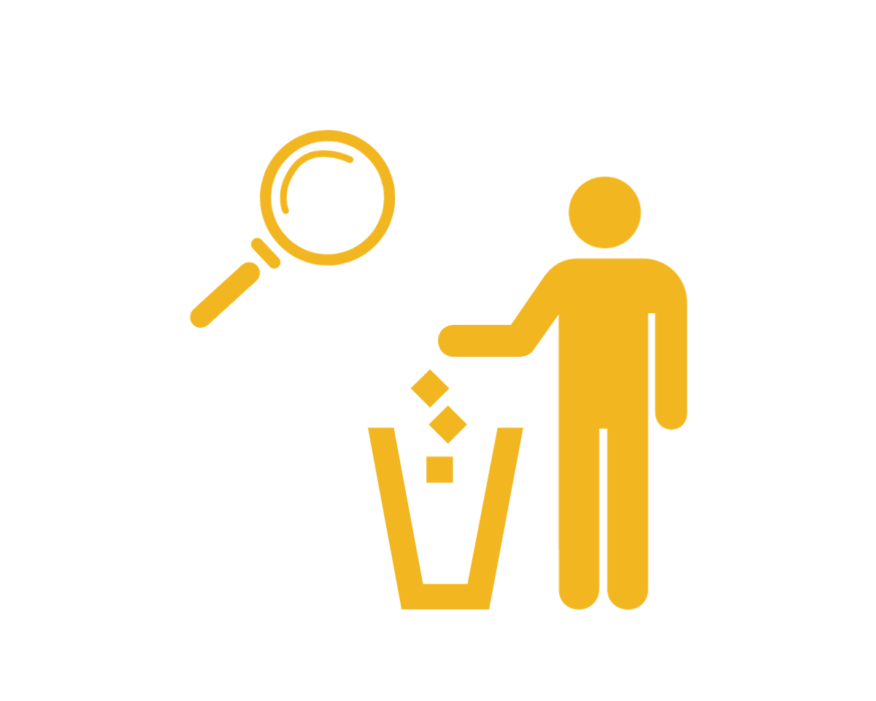
Explore our Linktree: /HarvardREP for a wealth of valuable resources and dive into our ongoing campaigns.
Discover REP campaigns and campus-wide sustainability resources!Opens new window
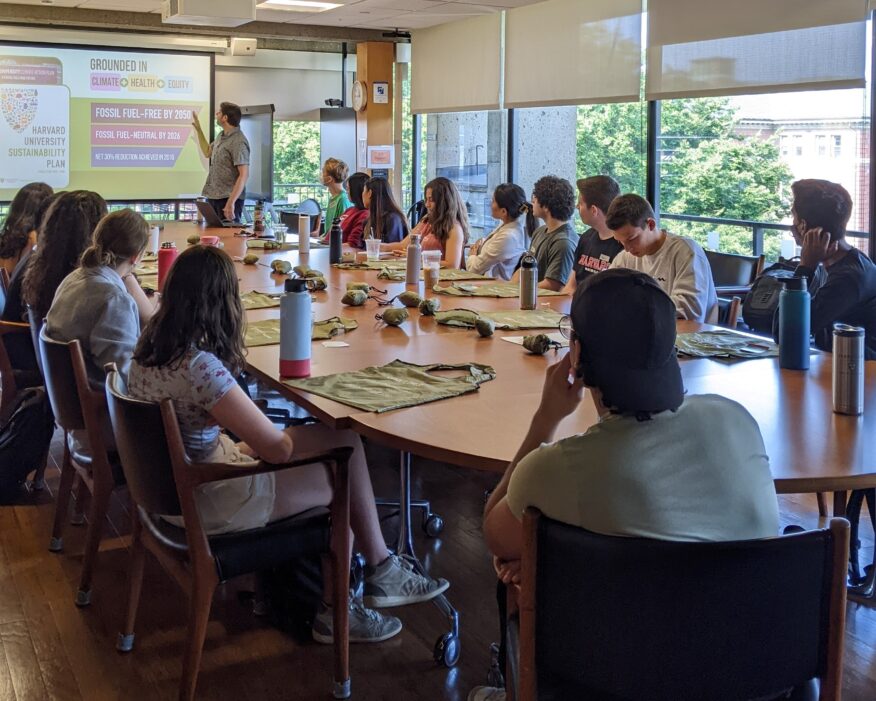
Zero Waste
At Harvard, we aim to sustainably manage all waste streams—including plastics, recyclables, and organics, as well as construction, demolition, and hazardous waste—while prioritizing waste prevention and reduction.
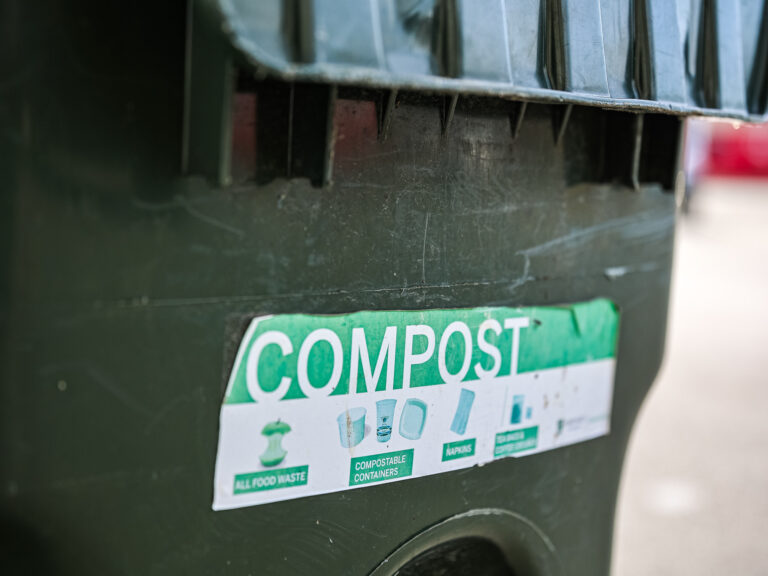
Sustainability at Harvard